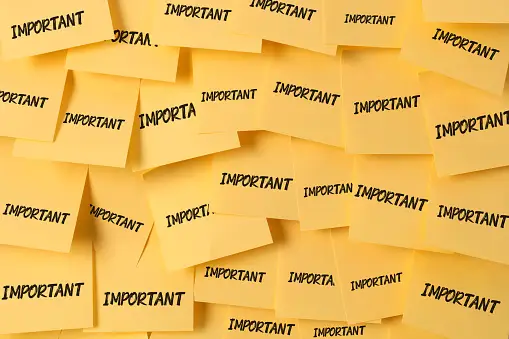Mastering new vocabulary is essential for effective communication and comprehension in any language. Whether you are learning a new language or expanding your vocabulary in your native tongue, there are several strategies and techniques you can use to accelerate your learning process. This guide will provide you with a comprehensive approach to mastering new vocabulary quickly.
Understanding How Memory Works
To master new vocabulary, it is important to understand how memory functions. Memory can be divided into three main categories: sensory memory, short-term memory, and long-term memory. The goal is to transfer new vocabulary from short-term memory to long-term memory, where it can be retained and recalled when needed.
Creating a Study Plan
A well-structured study plan is crucial for effective vocabulary learning. Here’s how to create a study plan that works for you:
- Set Clear Goals: Define what you want to achieve in a specific timeframe. For example, aim to learn 10 new words a day.
- Establish a Routine: Consistency is key. Allocate specific times each day for vocabulary study.
- Track Your Progress: Keep a record of the words you learn and review them regularly to reinforce your memory.
Using Flashcards
Flashcards are a proven tool for vocabulary learning. They use active recall and spaced repetition to enhance memory. Here’s how to use flashcards effectively:
- Create Your Own Flashcards: Writing down the words and their meanings helps with memorization.
- Include Examples and Images: Adding example sentences and images can make the words more memorable.
- Review Regularly: Use a spaced repetition system (SRS) to review flashcards at increasing intervals.
Contextual Learning
Learning words in context, rather than in isolation, improves retention and comprehension. Here are some methods for contextual learning:
1. Reading and Listening
Engage with a variety of reading and listening materials in your target language. Here’s how to make the most of these resources:
- Choose Interesting Content: Select books, articles, podcasts, and videos that interest you.
- Note Unfamiliar Words: Look up the meanings and make a note of new vocabulary.
- Practice Active Engagement: Summarize the content and use new words in sentences.
2. Writing and Speaking
Using new vocabulary in writing and speaking helps reinforce learning. Here are some tips:
- Write Regularly: Incorporate new words into essays, journal entries, or creative writing.
- Practice Speaking: Engage in conversations with native speakers or language partners.
- Record Yourself: Listening to your recordings can help you identify areas for improvement.
Memorize Chinese Words
Learning to memorize Chinese words can be particularly challenging due to the language’s unique characteristics. Here are some specific strategies to help you memorize Chinese words more effectively:
1. Focus on Characters and Pinyin
Understanding both Chinese characters and their pinyin (phonetic transcription) is essential. Here’s how to approach this:
- Break Down Characters: Learn the basic components (radicals) of Chinese characters.
- Practice Writing: Repetition is crucial for memorizing Chinese characters. Write each character multiple times.
- Learn Pinyin: Mastering pinyin will help with pronunciation and listening skills.
2. Use Language Learning Apps
There are several apps designed specifically for learning Chinese. Some popular ones include:
- Pleco: A comprehensive dictionary and learning tool.
- HelloChinese: Offers interactive lessons and exercises.
- Skritter: Focuses on writing Chinese characters.
Sliding Words
The concept of sliding words involves gradually moving words from passive recognition to active usage. This technique ensures that you not only recognize words when you see or hear them but also use them correctly in speaking and writing. Here’s how to implement sliding words:
1. Passive to Active Practice
Start by recognizing words in context and gradually move towards using them actively. Here’s a step-by-step approach:
- Step 1: Recognition: Identify and understand new words in reading and listening materials.
- Step 2: Repetition: Repeat the words aloud and write them down.
- Step 3: Usage: Incorporate the words into sentences and conversations.
2. Tracking Progress
Keeping track of your progress can help you stay motivated and identify areas for improvement. Here’s how to track your progress:
- Keep a Vocabulary Journal: Write down new words, their meanings, and example sentences.
- Use Apps with Progress Tracking: Many language learning apps have built-in progress tracking features.
- Set Goals: Establish short-term and long-term vocabulary goals and celebrate your achievements.
Utilizing Mnemonic Devices
Mnemonic devices are memory aids that help you remember information through association. Here are some types of mnemonics you can use:
- Acronyms: Create acronyms using the first letters of the words you’re trying to remember.
- Visual Imagery: Associate words with vivid images.
- Rhymes and Songs: Creating rhymes or setting words to music can make them easier to recall.
Engaging Multiple Senses
Engaging multiple senses can enhance memory and learning. Here are some ways to incorporate sensory learning into your vocabulary study:
- Visual Learning: Use flashcards, mind maps, and color-coding to visualize words.
- Auditory Learning: Listen to recordings of the words and repeat them aloud.
- Kinesthetic Learning: Write the words down multiple times and use gestures to reinforce their meanings.
Using Technology
Technology can be a powerful tool for mastering new vocabulary. Here are some technological aids to consider:
1. Language Learning Apps
Many apps are designed to help you learn and memorize words. Some popular options include:
- Duolingo: Offers gamified language lessons.
- Memrise: Uses spaced repetition and mnemonic techniques.
- Anki: A customizable flashcard app with a focus on spaced repetition.
2. Online Resources
There are countless online resources available for language learners, including:
- Websites and Blogs: Many sites offer free lessons and tips.
- YouTube Channels: Language teachers and enthusiasts share valuable content.
- Podcasts: Listening to podcasts can improve your listening skills and introduce you to new words.
Emotional and Psychological Strategies
Your emotional and psychological state can significantly impact your ability to learn and retain new vocabulary. Here are some strategies to enhance your learning experience:
1. Stay Motivated
Finding ways to stay motivated can make the learning process more enjoyable and effective. Here are some tips:
- Set Clear Goals: Having specific, measurable goals can give you a sense of direction.
- Celebrate Milestones: Reward yourself for reaching your goals.
- Stay Positive: Maintain a positive attitude and remind yourself of your progress.
2. Reduce Stress
Stress can hinder your ability to learn and retain information. Here are some ways to manage stress:
- Practice Mindfulness and Relaxation Techniques: Meditation, deep breathing, and yoga can help reduce stress.
- Take Breaks: Give yourself time to rest and recharge.
- Maintain a Healthy Lifestyle: Regular exercise, a balanced diet, and adequate sleep can improve cognitive function.
Collaborative Learning
Learning with others can provide additional motivation and support. Here are some ways to incorporate collaborative learning into your routine:
1. Join Study Groups
Study groups can provide a sense of community and accountability. Here’s how to make the most of study groups:
- Choose a Group with Similar Goals: Find others who are learning the same language or vocabulary.
- Meet Regularly: Consistent meetings can help keep everyone on track.
- Share Resources and Tips: Collaborate and learn from each other.
2. Language Exchange Partners
Language exchange partners can offer real-life practice and feedback. Here’s how to find and work with a language partner:
- Find a Partner: Look for language exchange communities online or locally.
- Set Mutual Goals: Establish what each of you wants to achieve.
- Practice Regularly: Consistent practice is key to improvement.
Incorporating Games and Fun Activities
Making learning fun can significantly enhance your ability to master new vocabulary. Here are some ideas for incorporating games and activities into your study routine:
1. Word Games
Word games can make vocabulary learning enjoyable. Here are some popular options:
- Crossword Puzzles: Solve puzzles to learn new words and their meanings.
- Word Searches: Find and circle new vocabulary words in a grid.
- Scrabble or Boggle: Play word games that challenge you to create words from a set of letters.
2. Language Apps with Gamification
Many language learning apps use gamification to make learning fun. Here are some examples:
- Duolingo: Offers a game-like interface with rewards and achievements.
- Babbel: Includes interactive exercises and games.
- Lingodeer: Uses gamified lessons and quizzes.
The Role of Sleep and Nutrition
Your physical well-being plays a crucial role in your ability to memorize and recall new vocabulary. Here are some tips to optimize your sleep and nutrition for better learning:
1. Prioritize Sleep
Adequate sleep is essential for memory consolidation. Here’s how to ensure you’re getting enough rest:
- Stick to a Sleep Schedule: Go to bed and wake up at the same time every day.
- Create a Bedtime Routine: Develop a relaxing pre-sleep routine.
- Limit Screen Time: Avoid screens at least an hour before bed.
2. Maintain a Healthy Diet
Proper nutrition can enhance cognitive function and memory. Here are some dietary tips:
- Eat a Balanced Diet: Include a variety of fruits, vegetables, whole grains, and lean proteins.
- Stay Hydrated: Drink plenty of water throughout the day.
- **Limit Sugar and Caffeine:** Excessive sugar and caffeine can disrupt focus and sleep.
Continuous Learning and Adaptation
Learning is a lifelong process. Continuously adapting your strategies and seeking new opportunities to learn can help you stay on track. Here are some tips for continuous learning:
1. Stay Curious
Cultivating a sense of curiosity can make learning more enjoyable and sustainable. Here’s how to stay curious:
- Explore New Topics: Don’t limit yourself to a single area of study.
- Ask Questions: Always seek to understand the “why” and “how” behind new information.
- Embrace Challenges: View challenges as opportunities for growth.
2. Adapt Your Strategies
As you progress, your learning needs and preferences may change. Here’s how to adapt your strategies:
- Evaluate Your Progress: Regularly assess what’s working and what’s not.
- Be Flexible: Don’t be afraid to try new techniques and approaches.
- Seek Feedback: Get input from teachers, peers, or language partners.
Conclusion
Mastering new vocabulary quickly requires a combination of strategies tailored to your individual learning style. By understanding how memory works, creating a structured study plan, using flashcards and mnemonic devices, engaging in contextual and sensory learning, utilizing technology, and adopting emotional and psychological strategies, you can enhance your ability to learn and retain new words. Remember to stay motivated, manage stress, and continuously adapt your learning approach. With persistence and the right techniques, you can achieve your vocabulary learning goals and enjoy the process along the way.









